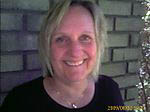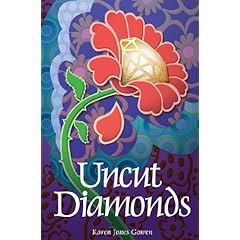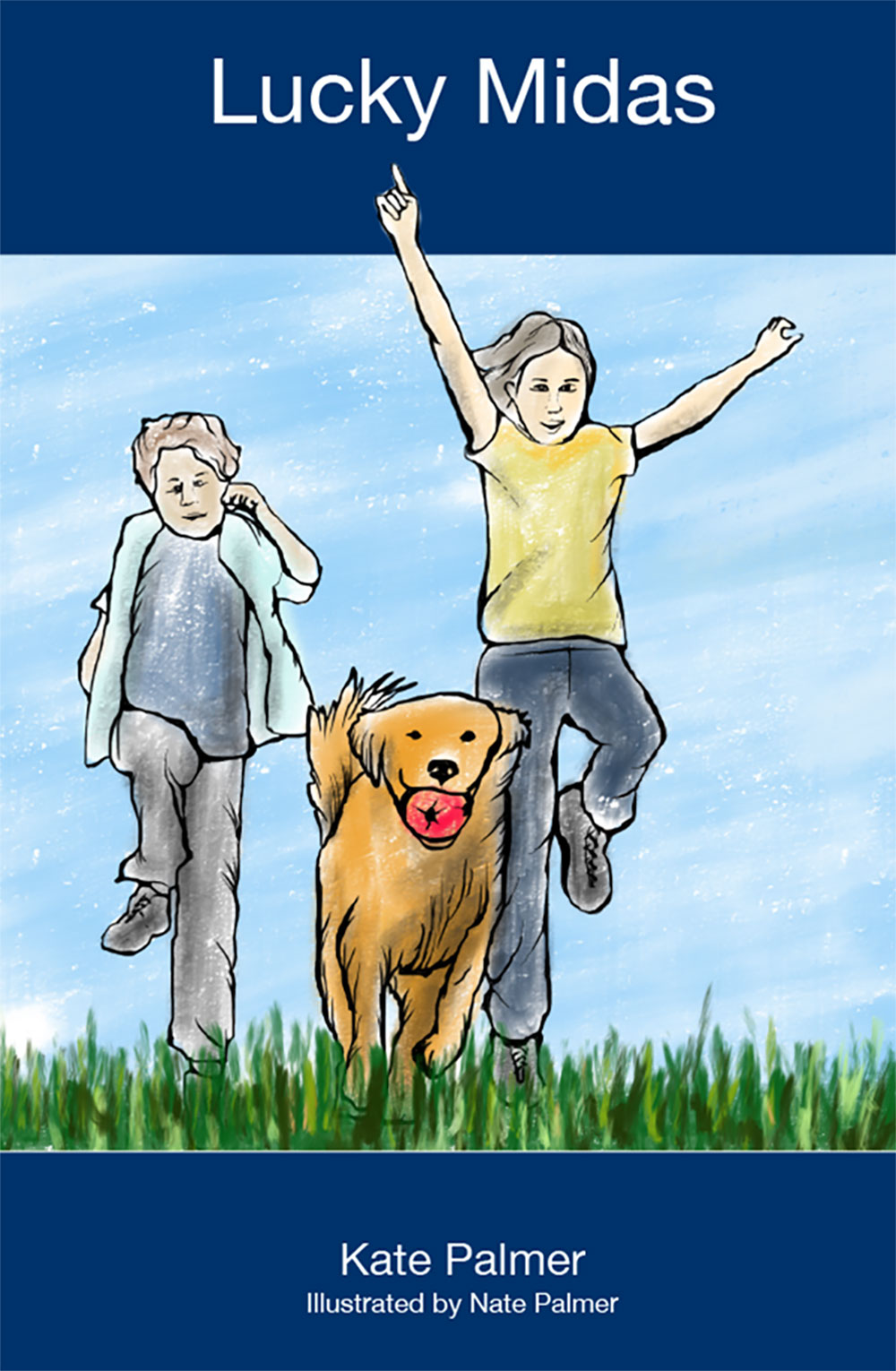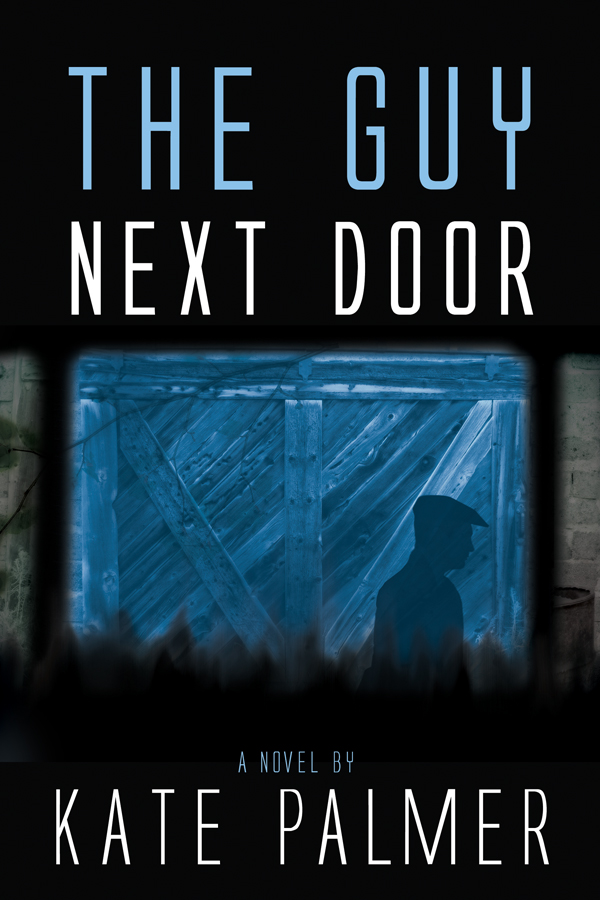 Karen Jones Gowen is the author of two recently published books. Her bio reads, “Karen Jones Gowen is a graduate of Brigham Young University and mother of ten. Born and raised in Central Illinois, she and her husband now live in South Jordan, Utah.” It’s these three words that intrigue me: mother of ten. Maybe it’s because I’m from a family of seven children, or that my husband is the oldest of ten, or that I decided twelve children would be a goodly number (please note, I have 5 children and I’m 37, so that won’t be happening). Whatever the reason, I started frequenting her blog and commenting and she began visiting my blog and a friendship has grown. So I’m pleased that Karen consented to be a guest on my blog today.
Karen Jones Gowen is the author of two recently published books. Her bio reads, “Karen Jones Gowen is a graduate of Brigham Young University and mother of ten. Born and raised in Central Illinois, she and her husband now live in South Jordan, Utah.” It’s these three words that intrigue me: mother of ten. Maybe it’s because I’m from a family of seven children, or that my husband is the oldest of ten, or that I decided twelve children would be a goodly number (please note, I have 5 children and I’m 37, so that won’t be happening). Whatever the reason, I started frequenting her blog and commenting and she began visiting my blog and a friendship has grown. So I’m pleased that Karen consented to be a guest on my blog today.
Mostly I stand in awe of these ladies like my mom, mother in-law, and Karen who put their families first. The characters in Karen’s book Uncut Diamonds demonstrate this commitment to family. No matter the hardships they face, Marcie and Shawn determine to get through it together. They may be frustrated with finances or long work hours to the point of arguing, but are never selfish enough to let it destroy family relationships.
Kate: How long have you lived in Utah?
Karen: We moved here in 1990, almost 20 years!
Kate: What is your favorite place that you’ve lived and why?
Karen: I loved living in northern California. We were there just under five years, and the whole time it felt like vacation. Well, at least for me and the kids. My husband was working pretty hard, but my kids and I loved it–we spent a lot of time at the beach, at parks, at malls, driving to Watsonville for fresh fruits and vegetables, driving to Monterey and Santa Cruz– and just enjoying the California lifestyle.
Kate: My Mom is from northern California–so it was our vacation. What are the most challenging aspects of being a mother of ten children?
Karen: My challenges varied at the time, depending–financial, schoolwork, time constraints, fighting among siblings, noise level in the household, and my own inadequacies. Like any family, there is no end to the challenges. In a large one, everything is multiplied, enlarged and expanded. Including the blessings and the joy.
Kate: I kinda expected to see sleep deprived in there. What is most rewarding about raising a large family?
Karen: The fact that we are like a community among ourselves. There’s such a bond of shared affection, talents, interests, and a feeling of specialness that we are “the Gowens.” I suppose it is prideful, but we can’t help it. The kids have all had friends who want to be adopted into “the Gowens.”
Kate: That prideful feeling of belonging to the best family is something I was searching for in a husband. I was always proud to be a Hoth growing up and I wanted that for my children. I found it with my in-laws. You’re right, it is a sense of community. What things are you passionate about?
Karen: Besides my family–the Gospel, definitely. I love the Gospel and I love the Church. Being a convert, I remember what it was like not having this in my life. After family and church, it would be books, writing, and food. I also love to knit. I am passionate about yarn. And about my pond. I have a plan to write a book of essays on pond life called “The Sunburned Fish and Other Adventures of Backyard Pond Life.” That will probably come after “House of Diamonds.” It’s in outline stage.
Kate: You definitely have to post pictures of this pond! That sounds like a fun book. Do these interests influence your writing?
Karen: Most definitely, especially family. I don’t think I can write anything that doesn’t express my philosophy or make statements about what I feel about family. Not necessarily my family, but the concept of family in general. That is what both my books were about really–home and family–and how with effort they can survive all kinds of threats and challenges.
Kate: Did you read the intro to this interview before you answered? That was the take home message I got from reading your books. What’s your writing schedule like? Can you give us a visual picture of where, when, and how you write?
Karen: I sit in a comfortable chair. I write outlines and summaries on my laptop, with scenes thrown in here and there. Then I print those up, and write the first draft in longhand. The second draft is written on my laptop “copied” from the longhand version, with a lot of revision going on at the time. From then on, I revise from the computer, occasionally writing scenes on paper with pen.
Kate: Wow, longhand. What do you consider your strengths and weaknesses as a writer?
Karen: I’d say my strength is my ability to edit my work. I can set it aside for awhile, come back and see it freshly and know just what needs fixing. I’m not in love with my own writing. I am willing to “kill my darlings,” as they say. Also, I love to delve deep into a character and make that character like a real person. One of the greatest compliments anyone can give me is when they talk to me about Marcie or Shawn like they are real people. “Marcie this or Marcie that.” “Marcie and Shawn–” I love that, because then I know I created the characters to be real to a reader.
A weakness is that I am not plot-driven in my writing, and this is a disadvantage because many readers today enjoy a strong plot. I plan on being more plot-driven in my next one.
Kate: What is your favorite part of writing?
Karen: People. Making characters into real people. Taking things that are of interest to me in actual people and putting them in characters here and there. When the characters start to take shape, I get very excited and have a hard time stopping.
 Kate: In your book Uncut Diamonds, the main character, Marcie relies on knowledge that her ancestors survived hardships and so can she. Is this a theme present in your own life?
Kate: In your book Uncut Diamonds, the main character, Marcie relies on knowledge that her ancestors survived hardships and so can she. Is this a theme present in your own life?
Karen: Yes, because my Grandmother Julia Marker (the Grandmother Wilson in Uncut Diamonds) used to tell me stories about her growing up days on the Nebraska prairie. Her wonderful stories became ingrained in me. She told about the hardships as well as the fun times, and it was all very real in my mind.
Kate: In the introduction to your book Farm Girl you state, “Farm Girl is written by me as folklore collector rather than by me as author.” Can you explain how writing as a folklore collector is different from your writing as a fiction author?
Karen: I used my mother’s voice for that, not my voice as an author. I recorded her stories, and then I organized and edited them to make a cohesive narrative that people might enjoy reading. It isn’t accurately folklore, because when collecting folklore, the collector is not supposed to change or edit or organize. I have to admit to being a bit creative with that.
 Kate: That’s really interesting because my parents each wrote their family histories and gave them to us (their children) for Christmas one year. Reading Farm Girl was so similar to reading my parents’ histories because the memories were often grouped by themes and not always in chronological order. How would you recommend others go about collecting the folklore of their families?
Kate: That’s really interesting because my parents each wrote their family histories and gave them to us (their children) for Christmas one year. Reading Farm Girl was so similar to reading my parents’ histories because the memories were often grouped by themes and not always in chronological order. How would you recommend others go about collecting the folklore of their families?
Karen: I am glad you said “collecting” because that’s what it involves. Farm Girl is like a collection, because it includes the stories of my mother’s and grandmother’s lives, and also the photographs my grandmother took as an amateur photographer, very unusual in a farm wife of the 1920’s who had no formal education.
I prefer typing rather than taping, because I can type really fast and there is no tape recorder to add interference. Then later, after the session, the collector can go back and organize the stories. I would suggest the sessions involve as few people as possible, to avoid distractions and interruptions. And they need to be long enough to allow the subject to delve into their memories and get talking, but not so long to tire him out. Often, when tired, the subject will say, “Well, that’s all I can remember.” And later, at another session, more will come.
Kate: Thanks for visiting today and sharing your thoughts.




What a fascinating article, Kate! Gosh, I love reading about myself! (btw, I like your comments about Uncut Diamonds!)
Thanks for doing this Karen. It was so fun to “talk” to you. I was truly fascinated.
I don’t normally read character driven books like Uncut Diamonds, but after the first 20 pages I was hooked. I was drawn into the family circle and stopped wondering when the action starts ( I read a lot of detective stories). I was entranced by their lives and felt like a part of the story. As I moved through the book, I didn’t notice paragraphs or chapters, just the people. It felt so real.
I don’t usually like author interviews, but this one was quite good. Thank you Kate.
I would love to read that pond book. I find Karen’s slow, quiet way of writing is refreshing.
Jane–It’s uncanny how real the character’s thoughts are. Thanks for stopping by and commenting.
L.A.–Thanks for the compliment. Glad you stopped by.
Kate, you said “It’s uncanny how real the character’s thoughts are.”
I say, Any writer who wants to improve their skills in creating well-developed characters needs to read Uncut Diamonds. And study what Gowen does to make her characters come alive.
Kristine, thanks for stopping by and leaving a comment. Is the snow sticking in Minnesota yet?
I really liked this interview. I felt it gave me a good insight into Karen’s thoughts and feelings about writing in general and her two books in particular. I have read both and found them to be fascinating. Thanks for the well done intereview, and thanks to Karen for her gift. I look forward to many more books from Karen Jones Gowen.
Not really…the trees are barely turning yet! Some people blame this on global warming:)
Thanks for the interview Kate and Karen. It is no wonder kids want to be adopted into “the Gowens”. After reading just a small portion of Uncut Diamonds and now reading the interview, I am struck with the calm of both Marcie and Karen. With all the seeming chaos around them, Marcie and Shawn always have time for the children. And what mother of ten has time to learn how to knit, write and spend time by a backyard pond!
Karen,
I’m so glad you talked about how you collected your mother’s stories for Farm Girl (beginning in my folklore class I’m proud to add!!). I know this is an inspiration to others to collect the “voices” of those close to them.
Congratulations Karen for two books well done.
Deirdre
Julie, Rebecca, and Deirdre,
I enjoyed reading your comments. Thanks.
Karen’s positive family life comes through UNCUT DIAMONDS so well that we actually live with sane and happy people while we’re reading it. I enjoy her down to earth specifics. She even gets them in her blogs! I also read Farm Girl and loved it. I wrote a whole page about it, and as soon as I can master the computer, I might share it. (In the meantime I’ll just mail a copy to Karen!) (Am I admitting that the computer has won?) (Yes.)